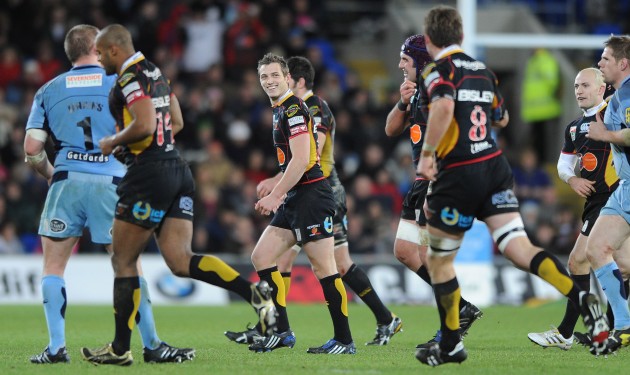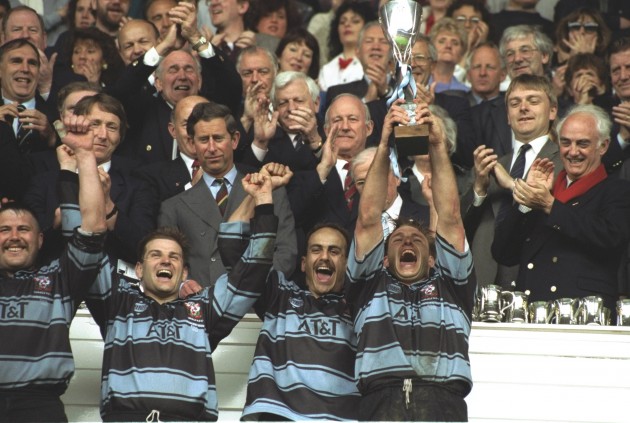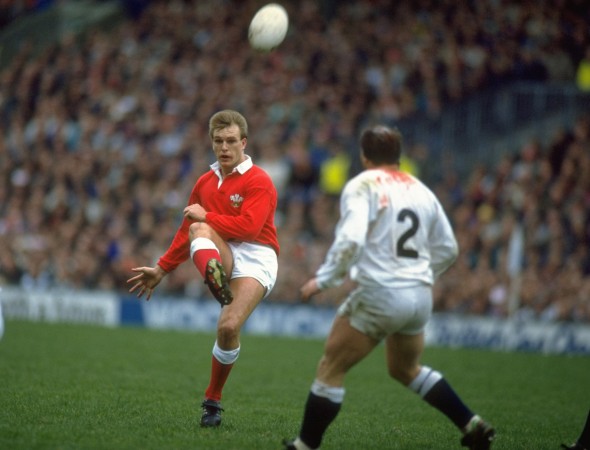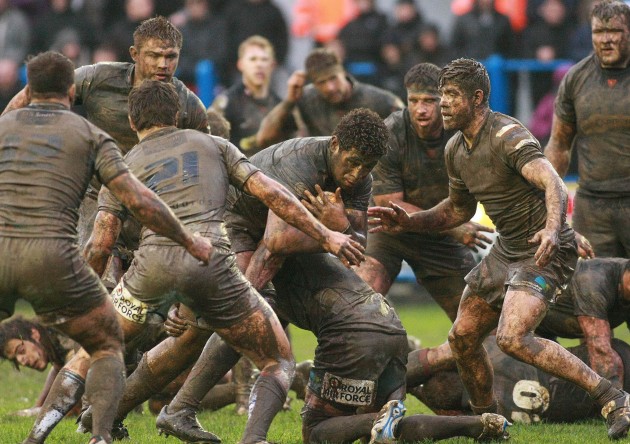Former Wales captain Mike Hall believes only a radical restructuring of the domestic game can save rugby in the Principality
Close your eyes at Cardiff Arms Park on Boxing Day and you might just imagine you’ve stepped back in time. A bumper crowd is expected for the Blues-Dragons Guinness Pro12 fixture and the atmosphere should be vaguely reminiscent of the great derby clashes of old.
“The Boxing Day local derbies were fantastic occasions,” says Mike Hall, the former Cardiff, Wales and Lions centre. “Cardiff-Pontypridd was the traditional Boxing Day game and it was unbelievably well supported, but of course there were rivalries all around South Wales.
“When you played for Cardiff every game was like a derby because everyone wanted to beat you. We weren’t really troubled much by Newport because they were in the doldrums when I played. Having said that, going to Rodney Parade, in front of a full house, could be a tough game. Sardis Road, Stradey, the Brewery Field were the same, real hotbeds of rugby. Players don’t experience that any more.”
Hall, 49, recalls one Cardiff-Newport game mired in controversy. In 1995, with Cardiff having wrapped up the league, then coach Alec Evans chose to rest most of his first team against the Black and Ambers ahead of the World Cup. The title celebrations went as flat as a week-old bottle of popped Prosecco as Cardiff lost 24-20, with one critic noting: “Cardiff supporters were aghast at Evans’s decision.”
Lost generation
At least there were some supporters to feel aghast. Nowadays, says Hall, a whole generation of spectators has been lost to football as Welsh domestic rugby struggles on with a failing system.
“People used to watch Cardiff ten years ago but now they’ve lost all their supporters. Regional rugby isn’t working, people aren’t watching, and we need to fire people’s imaginations and get people engaged again.
“It’s hard to be excited about watching Connacht, say, in an empty stadium with no atmosphere. I feel sorry for the players really. Llanelli, Cardiff, Newport, Swansea – these are world-famous clubs but we ripped it up and we’re paying the price now. We had something special but replaced it with something artificial. The Ospreys? Who are they? We’ve lost our way a bit.”
Ouch. Hall doesn’t mince his words but he backs up his criticism with a solution, albeit one that appears as infeasible as it is radical. The former Wales captain advocates returning to the traditional club structure and then picking the best players for two regional teams – not four as now – to play in European competition at the end of each season. Furthermore, he argues, the WRU should have sole ownership, with current franchise owners being rewarded for their largesse by making them life vice-presidents of the WRU, with all the perks such a position offers.
With such a structure, the union could replicate the successful Irish model and playing talent would be evenly distributed. So Dan Lydiate would be back playing for the struggling Dragons instead of the up-table Ospreys, who already have a host of back-row options that include Joe Bearman and James King. “You need one paymaster – the WRU. It’s not rocket science, is it?”
“Backward” Blues
Hall was one of the last amateurs, rashly retiring from international rugby aged 29 after Wales bombed out early in the 1995 World Cup. He won 43 caps, one of them for the 1989 Lions.
He has charted his rugby experiences in a new book (details below) and very interesting they are too. Wales’ decline in the Eighties, Kerry Packer’s failed professional ‘circus’, and choosing a Cambridge Blue over a Wales cap are just some of the topics covered, but perhaps most engrossing is the story of Cardiff City.
Hall is MD of a property development company, PMG, that was involved in the building of Cardiff City Stadium and adjacent retail park. The project was beset by problems, most stemming from the free-spending former chairman Sam Hamman, whose reign saw the club climb the leagues but accrue massive debt – £31m of it by the time the banks asked for their money back in 2004.
In October 2006 Cardiff City were two hours away from bankruptcy, but the club was saved, players were sold to pay tax bills, and eventually uber-rich Malaysian Vincent Tan arrived on the scene, pledging £100m investment as long as City played in red because that’s a lucky colour where he comes from.
Cardiff Blues briefly played at the new stadium before returning to the Arms Park from the start of the 2012-13 season. Hall calls that a terrible decision, arguing that a noisy minority of Blues fans, who liked having a pint in their city-centre local rather than travelling a mile and a half out to the new stadium, engineered the U-turn. “It’s a massive backward step for the Blues and I don’t really know how they can recover from it,” he says.
Bragging rights
Enough of the doom and gloom. It’s Christmas, after all, and both teams will at least go into the first of their festive derbies – they meet again in Newport on New Year’s Day – on the back of league wins. The Blues beat Scarlets 21-9 last weekend, with back-row Josh Navidi scoring two tries, whilst the Dragons accounted for Zebre 25-11.
Both sides have work to do, however, with only the two Italian sides separating them from the foot of the table. A top-six finish will be required to qualify for next season’s Champions Cup and currently that looks a long way off.
The first Cardiff-Newport game was in 1875 and, though fans no longer hang off trees to watch, local bragging rights are still something to cherish.
The Blues are without Wales captain Sam Warburton, after he suffered a stinger against the Scarlets, while one subplot will be the form of Gareth Anscombe, the Wales-qualified New Zealander who has conceded two tries this month through charged-down kicks. “I don’t think it’s a worry,” says Blues DoR Mark Hammett.
Enjoy the occasion if you’re going but don’t expect to bump into Hall – he rarely attends Blues matches nowadays.
Friday 26 December: Cardiff Blues v Newport Gwent Dragons (2.05pm, BT Sport Cardiff Arms Park)
* The Mike Hall Story is published by Y Lolfa, priced £9.95. All proceeds go to the Velindre Cancer Centre. To buy a copy, click http://www.ylolfa.com/en/dangos.php









